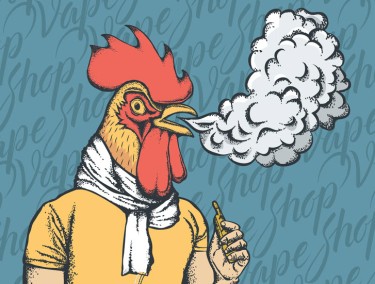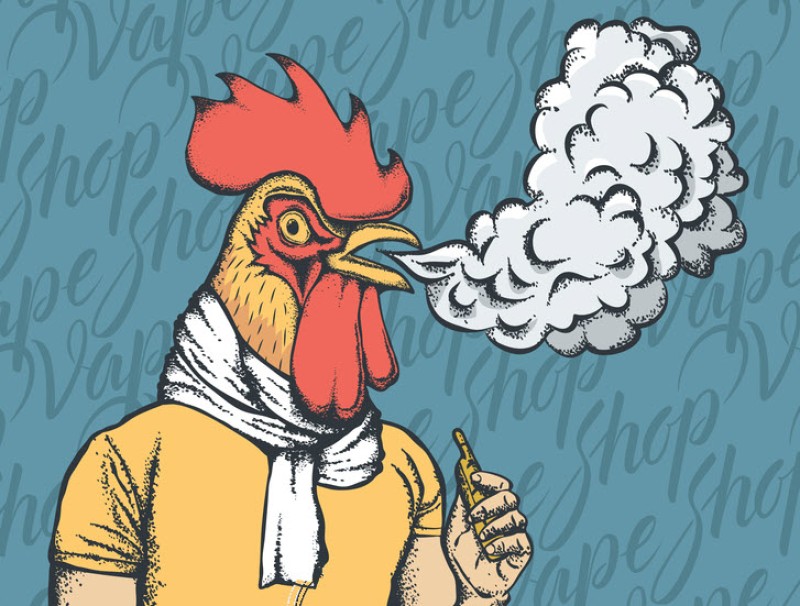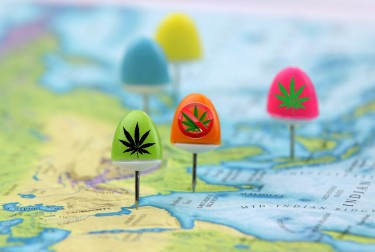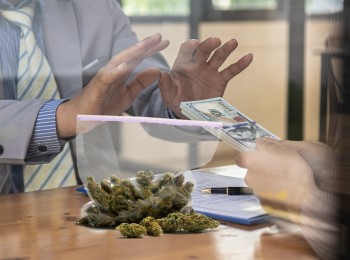
Stoned Chickens sell for more
How stoned is your chicken?
And no…this is not a reference to cocks…or maybe it is?
Recently, Insider Published an Article reporting on a farm growing medical marijuana in the newly establish Thai Marijuana industry that are giving their chickens cannabis instead of antibiotics. As a result, those who are seeking organic poultry are willing to pay a higher price for the meat.
Researchers from Chiang Mai University's Department of Animal and Aquatic Sciences said fewer than 10% of the 1,000 chickens at the farm in Lampang have died since they introduced marijuana to the chickens' diet in January 2021. – Insider.com
The experiment to give chickens cannabis instead of antibiotics is aimed to provide a solution for consumers who do not want to have hormone filled, antibiotic chickens as their meal. In fact, the people who have purchased these chickens say that the “meat taste better, and is more tender”.
The birds are fetching double the regular price — about $1.50 per pound — mostly because buyers want organic chickens that haven't been administered antibiotics, Lumsangkul said. She also claimed that the chickens' meat — which they call "GanjaChicken" — is more tender and tastes better than regular chickens. – Insider.com
This could be because they aren’t pumping these chickens with hormones to make them grow faster, which allows the chicken to naturally develop its muscles, cardiovascular systems, etc. This is in stark contrast to “factory farmed chicken” or as the industry calls them “Broiler Chickens”.
Broilers raised in this way are supposed to reach “slaughter weight” at just six or seven weeks of age, but the death toll is very high. The growth of abnormally heavy bodies causes crippling and painful skeletal deformities, and the overburdening of the birds’ underdeveloped cardiopulmonary systems often causes congestive heart failure before they are six weeks old. – Britannica.com
Unfortunately, I was unable to find the “death rate” amongst factory-farmed chickens, which made it impossible to compare with GanjaChickens. In all likeliness, the death toll is far higher per 1000 chickens, especially since the timeline for maturity is also warped.
Nonetheless, with a movement of more conscious eating occurring all over the world, people are no longer happy with how the industry has been raising and preparing their food. This is because most corporations are focused on maximizing profits and care very little about the health and wellness of their consumers.
Some might say, “Surely Tyson and similar places are working at the highest regulatory practices in the industry” but the fact of the matter is that these companies always attempt to do the “least that is required of them” to pass regulation.
This means that pumping chickens with hormones and antibiotics is common practice. The need for antibiotics also increase in environments such as factory farming. The mere fact that factory farming is permitted is a testament to how little these companies care about you and how much emphasis they place on profits.
People however, are becoming aware of these practices and as a result, are opting in for more organic options. With the cannabis industry coming into full swing, it might be a good opportunity for other farmers (non corporate chicken producers) to make the switch to cannabis-feed for their livestock.
Hemp for livestock – it’s a history thing!
All over the world up until the prohibition of cannabis, hemp-feed was common practice. It helped produce healthy, strong livestock. However, since the prohibition of cannabis, hemp was no longer permitted to be used as feed. This might change in the near future as there are studies under way to see how efficient and healthy hemp-feed is for cattle.
"Industrial hemp is typically grown to produce oil, seed, fiber and medicines," said Michael Kleinhenz, assistant professor of beef production medicine. "While varieties of hemp may be planted for a single or dual purpose, such as for seed and fiber, byproducts consisting of leaves, fodder and residual plant fibers remain after harvest. These byproducts could serve as potential feedstuffs for animals. Because these are predominantly cellulose-containing plant materials, the ideal species for utilizing these feeds are ruminant animals, specifically cattle." - Source
The research group that consists of multidisciplinary professionals including; pharmacologists, toxicologists, analytical chemists and horticulture experts found;
"We observed that the acidic cannabinoids, such as CBDA and THCA, are more readily absorbed from the rumen than other nonacid cannabinoid forms, such as CBD and CBG," Kleinhenz said. "Now that we have found that some cannabinoids are readily absorbed from the rumen, the next steps are to study the tissue and milk residue depletion profiles of these compounds after animal feeding experiments. The effects of cannabinoids on cattle are also unknown."
There’s a lot of benefits to be had from using hemp in feed as this article points out;
As cattle feed, scientists believe hemp can benefit health and increase performance. Hemp seed, for instance, is high in much-desired fatty acids, such as Omega 3, Omega 6, Omega 9 and GLA. It is also very high in proteins, which contain every amino acid.
Hemp seeds are also high in fiber, aiding an animal’s digestive system. It also is a good source of minerals, such as: Copper, Iron, Boron, Zinc, Manganese, Nitrogen and Zinc. Hemp will be given to animals in Colorado, via crushed seed meal, pellets or oil given as a supplement. - SOURCE
In other words, there is a lot of evidence to suggest that hemp can actually be something that will help improve the quality of our food.
In places like Colorado, they have already been adding hemp to the feed. However, it’s important to understand that it’s being used as a supplement rather as the main meal. This is similar to the practice in Thailand as we saw with the chickens.
“We’ve been adding about 10 percent to 20 percent of our pelletized hemp to feed for cattle and pigs,” says Pauli Roterdam of Endo Scientific, a hemp-based tincture company, and Audacious Farms, an organic urban farm in Denver, Colorado growing produce and hemp. “No one should ever feed their animals just everything hemp. It’s a supplement. What we’ve seen are healthier animals going for 10 to 20 percent more at auction. Their coats look better. They weigh more. And that’s just from four months on our hemp feed.” – TheHempMag.com
Researchers also believe that this will have a net benefit not only to the soil, but to human health as we begin to reduce our need for antiobiotics and hormones.
“We think we’re going to establish even more rare cannabinoid contents, returning the waste and regenerative qualities back to the soil, which adds more value to our animals, soil and people, returning hemp and CBD to our diet the way it was 100 years ago,” says Roterdam.
Sticky bottomline
At the end of the day, it seems that cannabis will not only revolutionize our health and wellness, but also will help revolutionize our food. If you’re an organic farmer or even just have a few chickens at home, try to find some hemp supplements and start experimenting. At the very least, some of your clients would be willing to pay more for their “Stoned Chicken”.
So what about you, are you excited about Ganja-Chicken?
MORE ON THAILAND'S CANNABIS PLANS, READ THIS..
ASIA'S BUMPY CANNABIS RIDE - THAILAND LEGALIZES GROWING AND EXPORTING!







